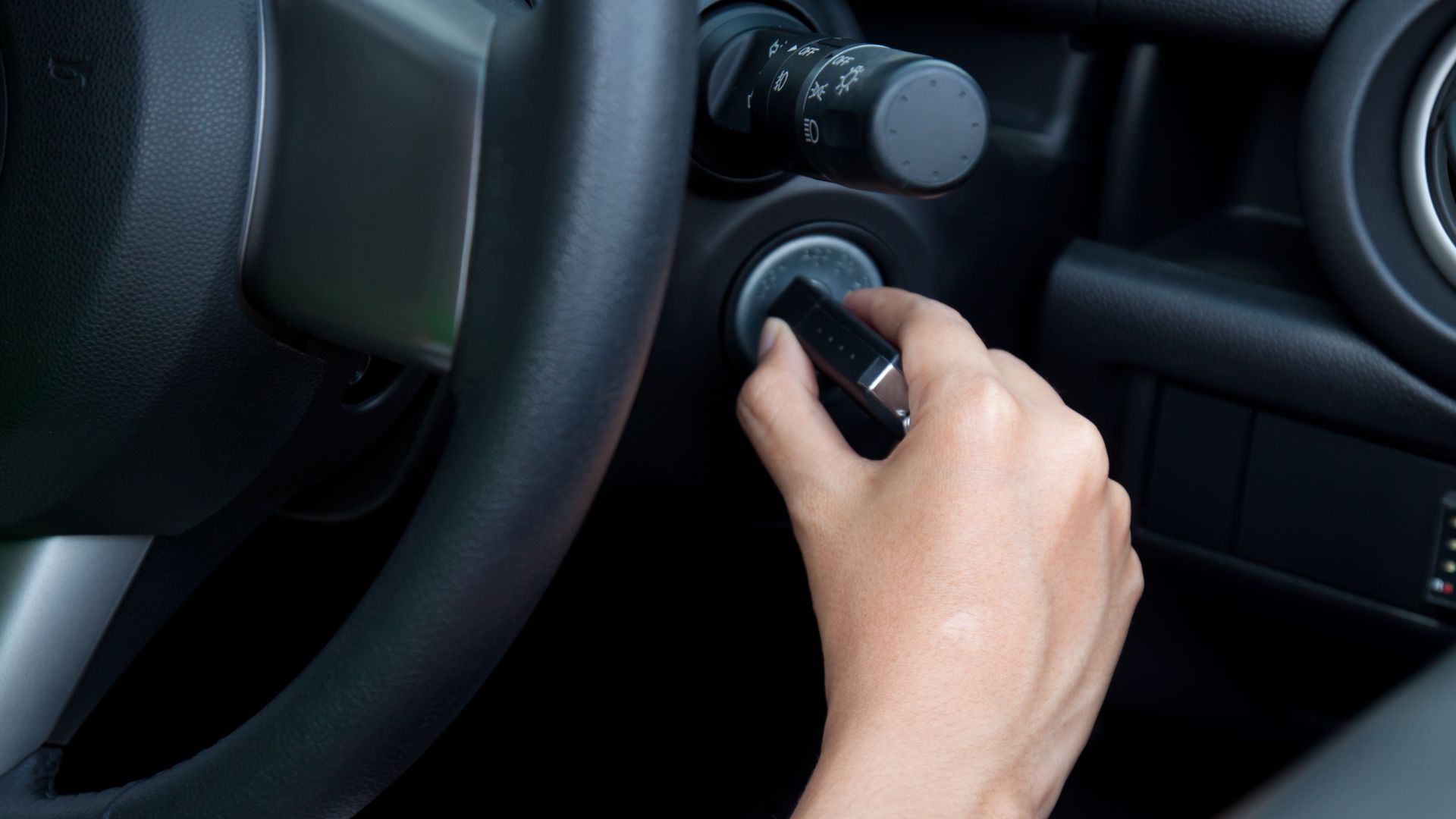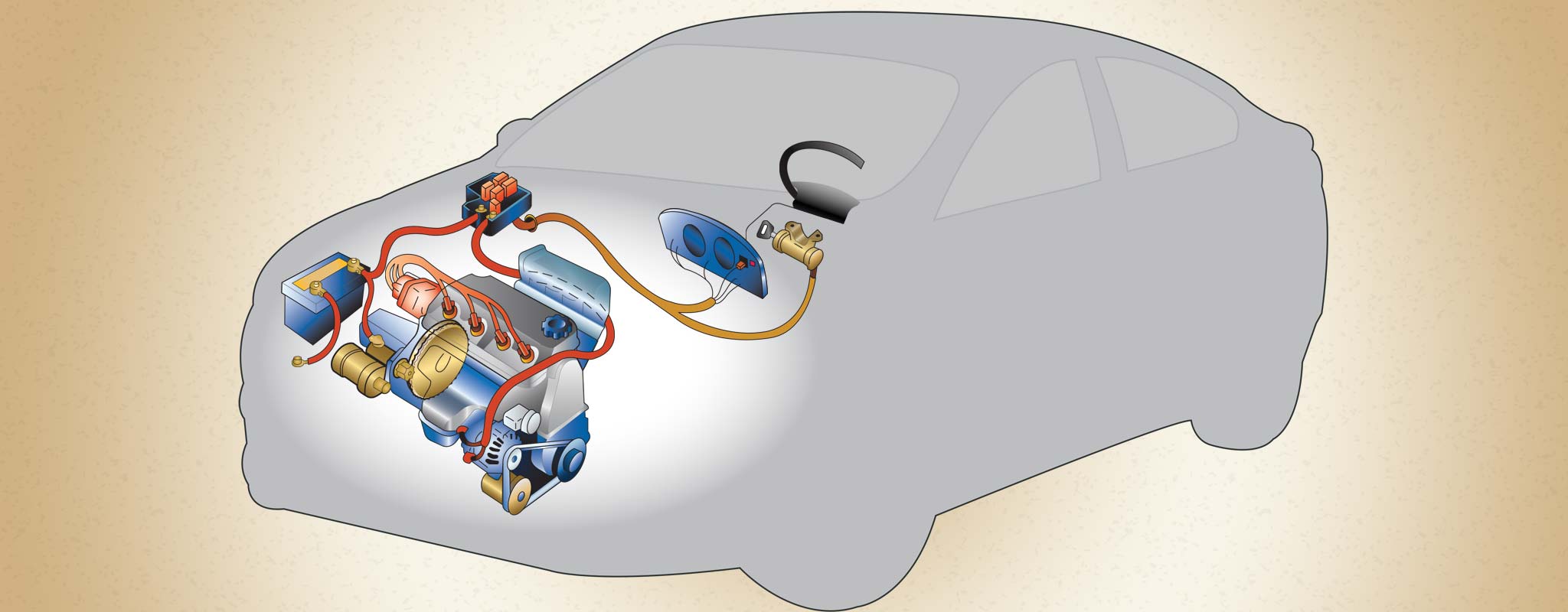There could be various reasons why your car starts sometimes and sometimes it doesn’t. In order to determine the cause, it is important to consider factors such as the battery, ignition system, and fuel supply.
A weak or dying battery could result in intermittent starting issues, while problems with the ignition system, such as a faulty starter motor or ignition switch, may also cause inconsistent starting. Additionally, a fuel delivery problem, such as a clogged fuel filter or a malfunctioning fuel pump, could be the culprit.
It is advisable to consult a mechanic who can diagnose and resolve the issue for you.

Credit: rerev.com
Engine Ignition Issues
Having trouble with a car that starts intermittently? Engine ignition issues could be the culprit. Faulty spark plugs, ignition coil problems, or defective fuel injectors often cause such frustrations. These problems prevent the engine from starting reliably, creating inconvenience and stress for car owners.
It is important to address these issues promptly to avoid being stranded on the road or facing more serious engine problems. Ignoring these problems can worsen over time and lead to costly repairs. If you’re experiencing starting problems with your car, have it inspected by a qualified mechanic who can diagnose and fix the underlying issues.
Taking proactive measures will ensure your vehicle runs smoothly and reliably, making your driving experience much more enjoyable. So, don’t ignore the signs and take action to find a resolution to your engine ignition problems.
Battery Problems
Having trouble starting your car? The culprit could be a weak battery. If your car starts sometimes and sometimes it doesn’t, it’s likely due to a battery problem. One of the possible causes is corroded battery terminals, which can prevent a smooth flow of electricity.
Another culprit might be a faulty alternator, which is responsible for charging the battery while the engine is running. A weak battery or corroded terminals can disrupt the charging process, leading to starting issues. To resolve this problem, it is recommended to check the battery’s voltage and condition, clean the terminals, and, if needed, replace the battery or alternator.
Taking proper care of your car’s battery and electrical system can help ensure reliable starts every time. Don’t let battery problems leave you stranded when a simple solution is within reach.
Fuel System Malfunctions
Car starting issues can often be traced back to problems in the fuel system. One common culprit is a clogged fuel filter, which can restrict the flow of fuel to the engine. Another potential issue is a fuel pump failure, where the pump isn’t delivering enough or any fuel to the engine.
Additionally, dirty fuel injectors can hinder the proper spray of fuel into the combustion chamber, leading to starting difficulties. If your car sometimes starts and sometimes doesn’t, it’s important to have these fuel system components checked and cleaned or replaced if necessary.
Neglecting these issues can lead to further damage and more frequent starting problems. So, be sure to address any fuel system malfunctions promptly to ensure reliable and consistent car starts.
Fuel Flow Blockage
My car occasionally experiences difficulties starting, indicating a potential fuel flow blockage. This issue could be caused by contaminated fuel, which may contain sediments that accumulate in the fuel tank. These sediments can clog the fuel lines, hindering the smooth flow of fuel to the engine.
As a result, the engine may not start or may have trouble starting. Clearing the fuel lines and ensuring clean fuel is essential to address this problem and restore proper fuel delivery to the engine. Taking preventive measures such as regular fuel system maintenance and using high-quality fuel can help minimize the risk of fuel flow blockages and keep the car running smoothly.
Remember to monitor the fuel quality and seek professional assistance if the issue persists.
Fuel Delivery Issues
My car begins on some occasions and fails to start on others. One possible issue could be insufficient fuel pressure. This can occur when the fuel pump relay fails to deliver the necessary pressure to the engine. Another potential cause could be a leaking fuel injector, which can disrupt the fuel delivery process.
Both of these issues can lead to intermittent starting problems. It is important to identify and address these fuel delivery issues promptly to ensure reliable vehicle performance. Consulting a professional mechanic for proper diagnosis and repair is advisable in such situations.
Regular maintenance and timely replacement of faulty components can help prevent such problems in the future.
Electrical Wiring Troubles
My car sometimes fails to start due to electrical wiring troubles. These troubles can occur because of loose or damaged electrical connections, which can disrupt the flow of electricity within the car. Another possible culprit could be a faulty crankshaft position sensor, which plays a critical role in the ignition system.
If this sensor malfunctions, it may not send the correct signals to the engine control module, leading to intermittent starting issues. Similarly, a failing engine control module can also cause problems with starting the car. It is important to have these electrical components thoroughly inspected and repaired by a professional technician to ensure reliable starting performance.
Ignoring these issues may result in a completely non-functional vehicle and potential safety hazards on the road.
Starter Motor Problems
Sometimes, your car may have trouble starting, which can be frustrating. One potential issue could be a worn-out starter motor. This component, responsible for starting the engine, can become worn over time and fail to engage properly. Another culprit may be a faulty starter solenoid, which helps to initiate the car’s ignition system.
If this part malfunctions, it can lead to intermittent starting problems. Additionally, issues with the starter motor relay could contribute to the sporadic starting behavior. This relay is responsible for transferring power to the starter motor, and if it malfunctions, it can cause the motor to inconsistently engage.
If you experience problems with your car starting sometimes and not others, it’s worth checking these components to address the issue and ensure your vehicle starts reliably.
Conclusion
Dealing with a car that starts sometimes and sometimes doesn’t can be frustrating. However, there are several steps you can take to troubleshoot the issue. First, check the battery connections to ensure they are tight and corrosion-free. Next, inspect the ignition switch and starter motor for any signs of damage.
If necessary, have these components tested and replaced by a qualified technician. Additionally, consider the fuel system and make sure there are no clogs or leakage. Finally, keep up with regular maintenance such as oil changes and spark plug replacements, as these can affect starting reliability.
By following these steps and staying proactive, you can increase the chances of your car starting consistently. Remember to consult professional help when needed and prioritize your safety while resolving any mechanical issues.

